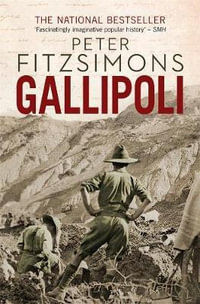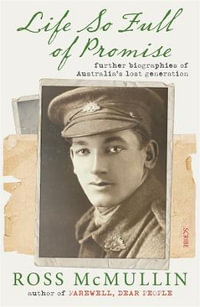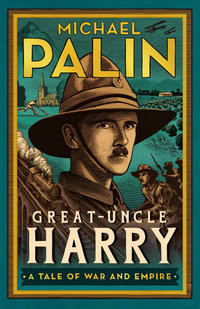Bayly's War is the story of the Royal Navy's Coast of Ireland Command (later named Western Approaches Command) during World War One. Britain was particularly vulnerable to the disruption of trade in the Western Approaches through which food and munitions (and later soldiers) from North America and the Caribbean and ores and raw materials from the Southern Americas, all passed on their way to Liverpool or the Channel ports and London.
After the sinking of the 'Lusitania' in May 1915 and the introduction of unrestricted submarine warfare by the Germans, Britain found herself engaged in a fight for survival as U-boats targeted all incoming trade in an attempt to drive her into submission. Britain's naval forces, based in Queenstown on the southern Irish coast, fought a long and arduous battle to keep the seaways open, and it was only one they began to master after American naval forces joined in 1917. Vice-Admiral Sir Lewis Bayly was the man appointed to the Coast of Ireland Command.
A fierce disciplinarian with a mania for efficiency, and thought by some of his colleagues to be more than a little mad, Bayly took the fight to the enemy. Utilising any vessel he could muster trawlers, tugs, yachts as well as the few naval craft at his disposal, he set out to hunt down the enemy submarines. The command also swept for mines, escorted merchantmen and fought endlessly against the harsh Atlantic weather. Relief came When America sent destroyers to Queenstown to serve under him, and Bayly, to the surprise of many, integrated the command into a homogenous fighting force.
Along the way, the Command had to deal with the ambivalent attitude of the Irish population, the 1916 Easter Rising, the attempt to land arms on Ireland s west coast and the resurgence of Irish nationalism in 1917. Bayly's War is a vivid account of this vigorous defence of Britain's trade and brings to life the U-boat battles, Q-ship actions, merchant ship sinkings and rescues as well as the tireless Bayly, the commander at the centre.
20 illustrations
About the Author
Steve Dunn has a special interest in the Royal Navy of the late Victorian, Edwardian and First World War eras. His books include biographies of Admirals Cradock (The Scapegoat) and Troubridge (The Coward?) and the story of the first British battleship, Formidable, to be sunk by a torpedo. His most recent books, Blockade and Securing the Narrow Sea have been published by Seaforth and cover those other significant naval theatres in the great trade battles of WWI.
Industry Reviews
Bayly's War is an easy-to-read, fascinating account of sacrifice and bravery, shedding new light on the remarkable Bayly. --Warships: International Fleet Review
Bayly's War is a vivid account of this vigorous defense of Britain's trade and brings to life the U-boat battles, Q-ship actions, merchant ship sinkings, and rescues as well as the tireless Bayly, the commander at the center. An impressively researched and deftly written history that is extraordinarily well organized and presented, Bayly's War: The Battle for the Western Approaches in the First World War is an invaluable and enduringly important contribution to the growing library of World War I histories and memoirs. Nicely illustrated with a series of plate illustrations, and featuring six Appendices, six pages of Notes, a three page Bibliography, and an eight page Index, Bayly's War is unreservedly recommended for the personal reading lists of military history buffs, as well as both community and academic library World War I Military & Naval History collections and supplemental studies reading lists. --Midwest Book Review
Bayly's War is very well written.... The lessons in this book include the importance of not underestimating the enemy, and understanding and mastering new technology. --Marine Technology
Bayly's War succeeds admirably as a theater study. The reader gets the full story of the Western Approaches. The evolution of tactics, the way the theater fit into the war effort as a whole, the experiences of personnel on the station, and especially the impact of the commander and his relations with those above and below on the chain-of-command all receive due attention. --Real Clear Defense
A well and very excitingly written description of the intense and cital activity of the Royal and, later, United States navies in the 'Western Approaches' to England during World War I, this important book reminds us of an important but mostly forgotten aspect of naval history.... An excellent biography. --Ausmarine
This book addresses one of the less explored aspects of the First World War, the British response to the U-boat offensives around the coasts of Ireland and in the waters off the southwest of Great Britain. Drawing on printed and documentary sources from Britain, Ireland, the USA, Australia, and New Zealand, Steve Dunn describes how the Royal Navy used aggressive patrolling by sloops and auxiliaries, armed merchantmen and fishing vessels, to deter attacks on shipping and developed decoys, known as Q-ships, to lure U-boats to their destruction.... Dunn's work is a fine piece of historical writing. --Australian Naval Institute
This new book gives a comprehensive coverage to the subject of the WWI anti-submarine warfare with fresh insight - Strongly Recommended. --FIRE Reviews
We highly recommend Bayly's War on many levels. It brilliantly addresses an aspect of the First World War that has received little coverage; namely, the demanding struggle to keep a critical supply line open, and introduces the reader to a fascinating British Admiral who has largely been forgotten with the passage of time. --The Northern Mariner
?This is an excellent book, looking at one of the key battles of the First World War, making it clear just how hard fought and costly it was, and how Bayly?s men helped win this difficult and dangerous campaign.? ?History of War
























